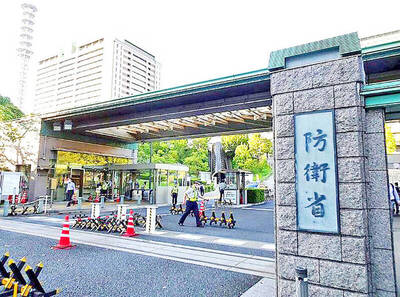The Changhua District Court yesterday sentenced a man surnamed Hsiao (蕭) to six years and eight months in prison for crashing into a student cycling group while driving under the influence of drugs in April.
The court also sentenced a man surnamed Chen (陳) to 10 years and four months for supplying Hsiao with etomidate and helping him use heroin and methamphetamine, and confiscated NT$2,500 in illegal gains under the Narcotics Hazard Prevention Act (毒品危害防制條例).

Photo courtesy of a reader via CNA
The crash occurred at about 9am on April 22, when 41-year-old Hsiao drove the wrong way at high speed on Changshui Road in Pitou Township (埤頭), striking the group of students from Kang Chiao International School who were cycling around Taiwan.
Seven were hospitalized, including one who was seriously injured.
Hsiao was also hurt, but failed to report for questioning after his release from hospital and was later detained.
The Changhua District Prosecutors' Office said he had used heroin and methamphetamine the night before the crash and smoked an electronic cigarette containing etomidate the next morning, rendering him unable to drive safely.
Prosecutors said Hsiao had a record of drug use dating back to 2003 and multiple prison terms.
The ruling can be appealed.

LOOKING NORTH: The base would enhance the military’s awareness of activities in the Bashi Channel, which China Coast Guard ships have been frequenting, an expert said The Philippine Navy on Thursday last week inaugurated a forward operating base in the country’s northern most province of Batanes, which at 185km from Taiwan would be strategically important in a military conflict in the Taiwan Strait. The Philippine Daily Inquirer quoted Northern Luzon Command Commander Lieutenant General Fernyl Buca as saying that the base in Mahatao would bolster the country’s northern defenses and response capabilities. The base is also a response to the “irregular presence this month of armed” of China Coast Guard vessels frequenting the Bashi Channel in the Luzon Strait just south of Taiwan, the paper reported, citing a

A total lunar eclipse, an astronomical event often referred to as a “blood moon,” would be visible to sky watchers in Taiwan starting just before midnight on Sunday night, the Taipei Astronomical Museum said. The phenomenon is also called “blood moon” due to the reddish-orange hue it takes on as the Earth passes directly between the sun and the moon, completely blocking direct sunlight from reaching the lunar surface. The only light is refracted by the Earth’s atmosphere, and its red wavelengths are bent toward the moon, illuminating it in a dramatic crimson light. Describing the event as the most important astronomical phenomenon

The presence of Taiwanese politicians at China’s military parade tomorrow would send the wrong message to Beijing and the international community about Taiwan’s sovereignty and democracy, a national security official said yesterday. China is to hold the parade tomorrow to mark the 80th anniversary of Japan’s surrender in World War II. By bringing together leaders of “anti-West” governments such as Russia, North Korea, Iran and Belarus, the parade aims to project a symbolic image of an alliance that is cohesive and unbending against Western countries, the national security official said, speaking on condition of anonymity. Former Chinese Nationalist Party (KMT) chairwoman Hung Hsiu-chu

ENHANCING DETERRENCE: Stationing the missiles in Kyushu would allow Japan to cover waters near Taiwan and China’s coastal areas without any logistical difficulties Japan is to deploy extended-range anti-ship missiles at a Ground Self-Defense Force base in Kumamoto to bolster its defenses, the Yomiuri Shimbun reported on Saturday. The upgraded Type 12 surface-to-ship missile, with a range of more than 1,000km, would be capable of striking targets in the Taiwan Strait and along China’s coast. Originally limited to a few hundred kilometers, the Type 12 was recently modernized ahead of schedule. Deployment, initially slated for next year, has been accelerated after the upgrade was completed sooner than expected, the newspaper said. Stationing the missiles in Kyushu would allow Japan to cover waters near Taiwan and